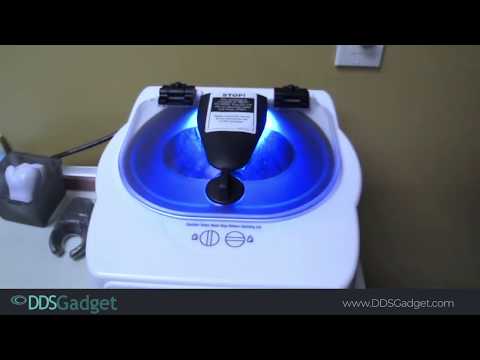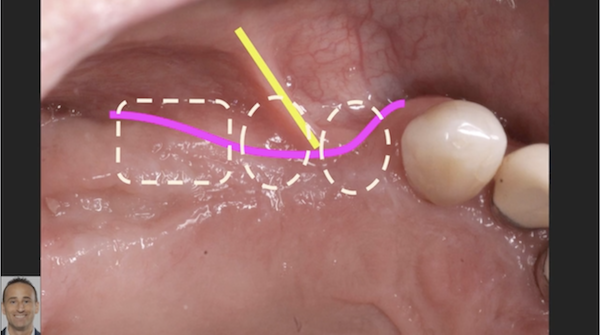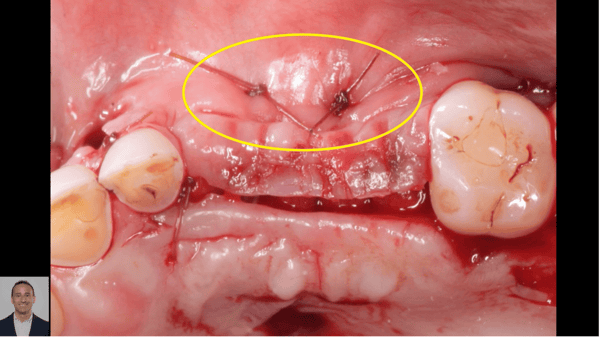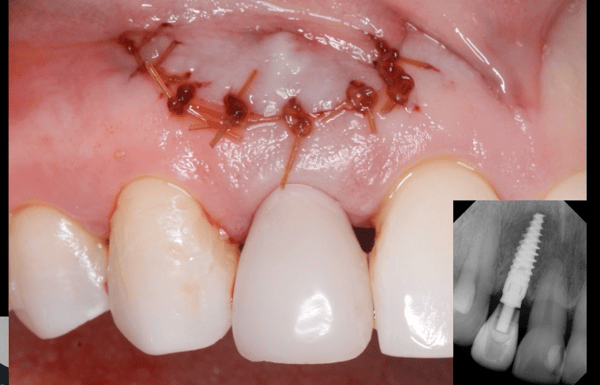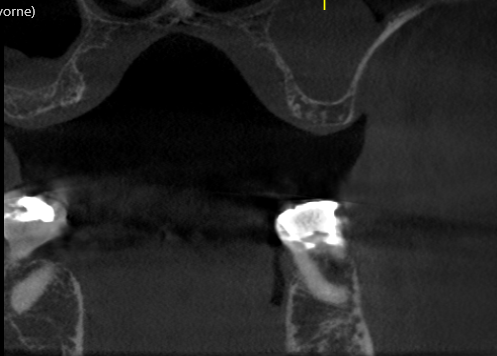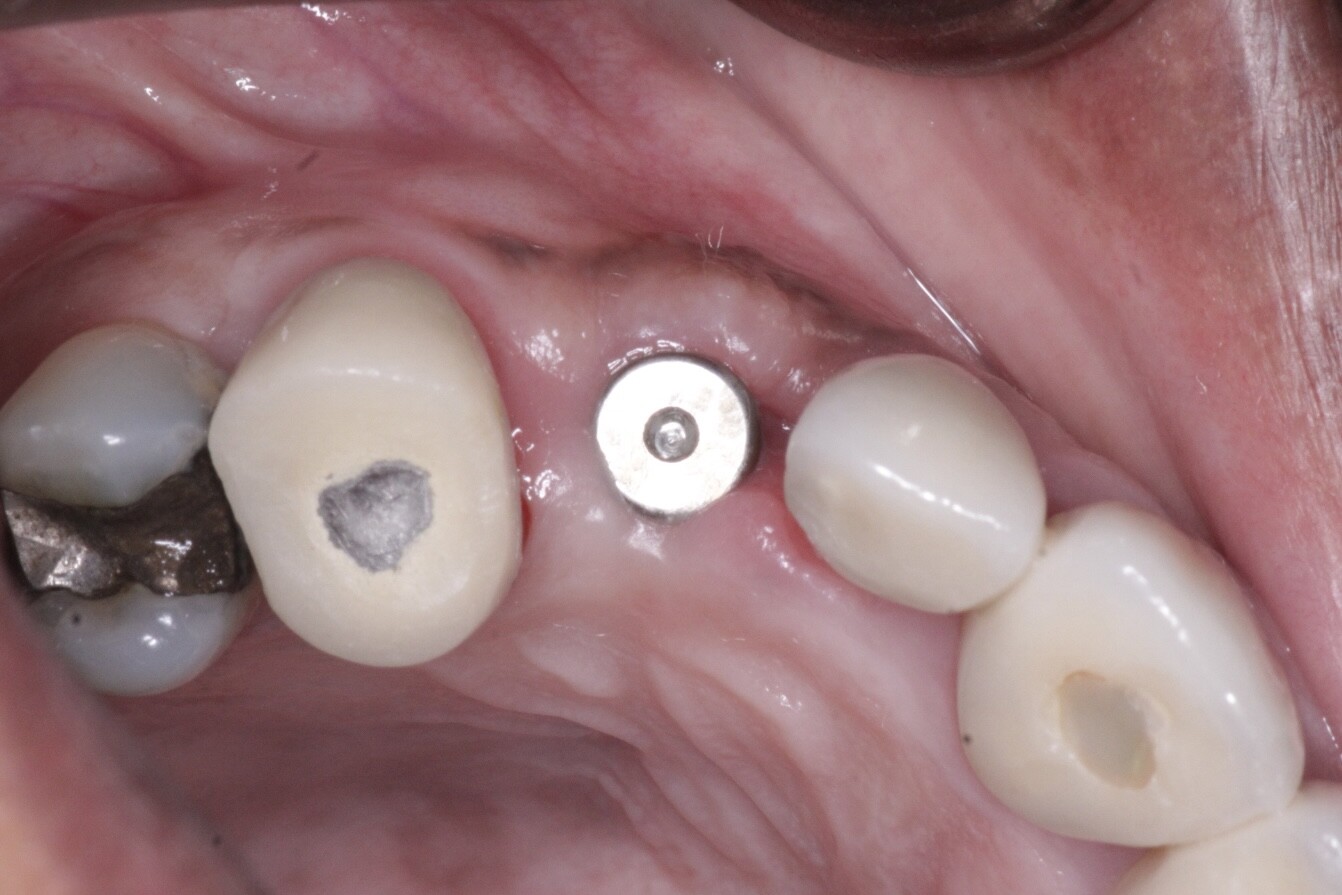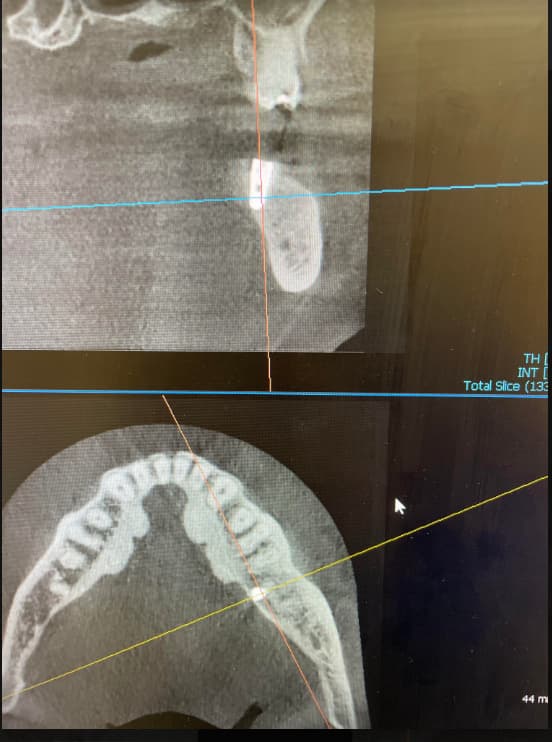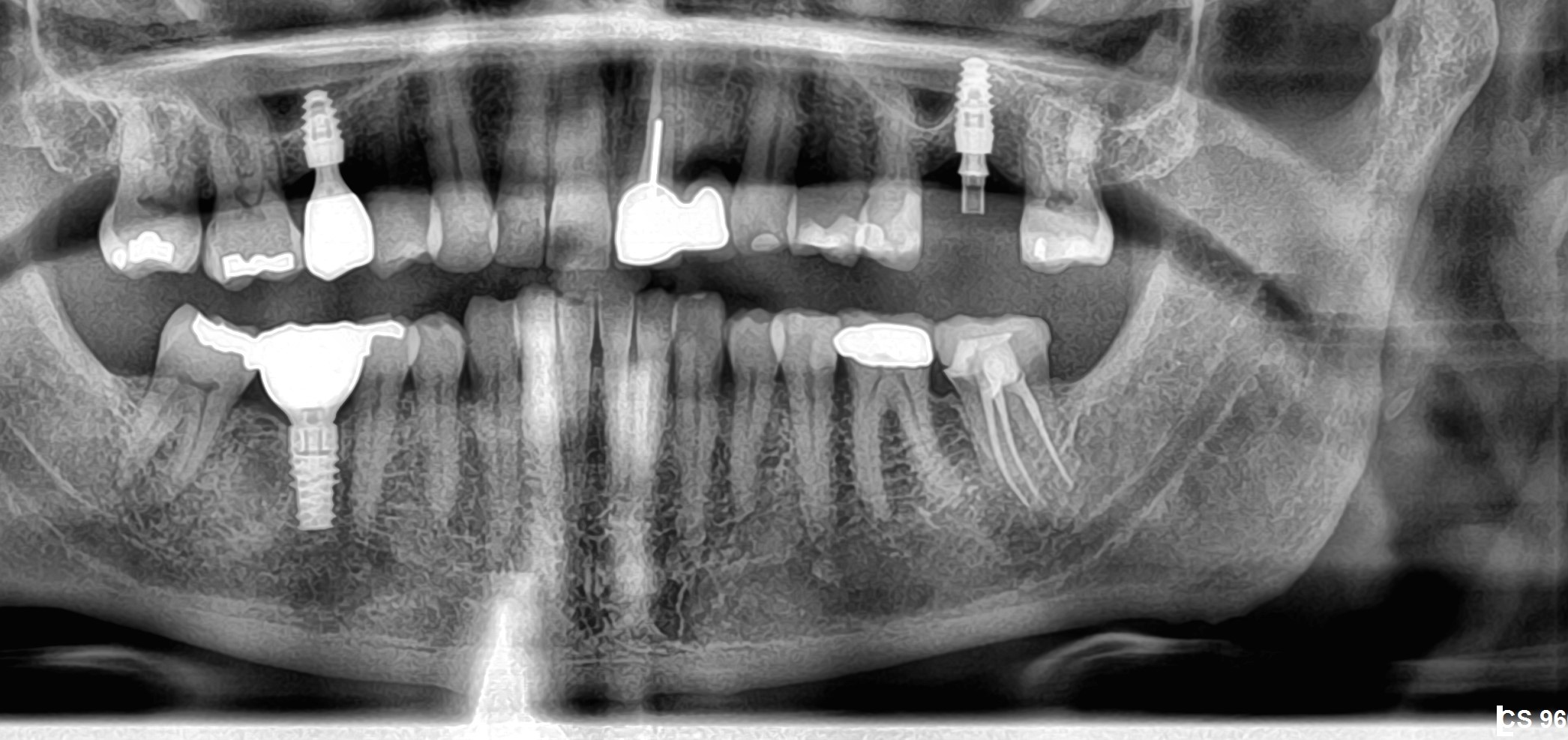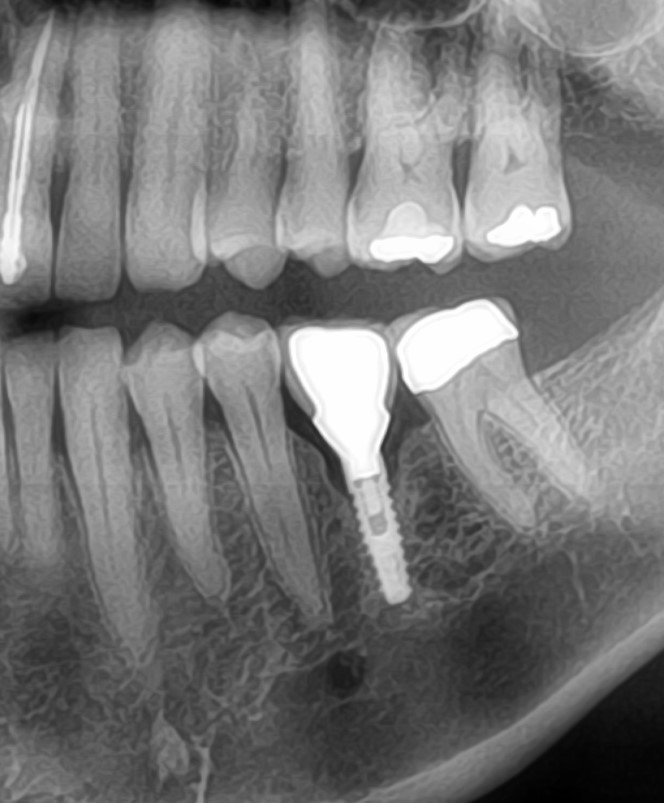Penetration of the Inferior Alveolar Nerve: Thoughts on Protocols?
Dr. B asks:
I’m a periodontist experienced in implant surgery. Out of hundreds of implants placed, I have had a few instances (three or four) where the drill penetrated the inferior alveolar nerve. I immediately withdrew the drill in each case and aborted the procedure to observe for parasthesia prior to re-attempting. Has any of you experienced such instances? And if so, have you seen any sign of nerve injury, whether temporary or permanent? Please share your thoughts.
34 Comments on Penetration of the Inferior Alveolar Nerve: Thoughts on Protocols?
New comments are currently closed for this post.
Dr C
7/4/2011
Dr. B,
Sounds like your administering IA blocks for your implant placement. You can avoid trauma to IA nerve by using infiltration in the mandible for your implant placement. If you get too close patient will let you know. This is how I do all my mandibular implant placement and have never had a problem. Had two cases of parathesia prior to using infiltration only. Both cases patient regained sensation. But, in on case it took 3 months. Havent blocked IA for placement since. Hope this helps.
Dr. C
Dr.B
7/4/2011
Thanks Dr. C. You're correct, I block for mandibular implants. While I'm aware of many colleagues infiltrating and I appreciate that it has worked for you I'm not so sure it's a reliable method since it's very subjective. Thanks again for your input.
Danupas JS
7/4/2011
I agree with Dr.c using infiltration in the mandible for your implant. I’m experienced in implant surgery more than ten years and ten hundreds of implants placed. I'm using infiltration only in the mandible. my patient don't pain or parathesia of operation.
peter fairbairn
7/5/2011
In thousands of placements over 20 years I fortunately have never had an IDN issue , clear radiograph interpretation and now scans with a bit of caution are needed.
Being only a GDP means I must NOT make the mistake as that will be thrown at me.
The use of flat blade burs can help , but it is all about caution , always take a pilot PA to confirm position and depth.
Peter
Dr. C
7/5/2011
Dr. B,
Could you explain what you meant by "subjective". The patient either has a nerve block or not. If the nerve is not blocked and still has sensation, you cant damage it, unless you choose to ignore your patient and keep drilling. Just as everyone else has posted, take a pre-op PA. Drill to depths with pilot and take verification X-ray. If patient has no pain with this, you can place at this depth without any problem. If patient has pain when trying to drill to this depth you will have to step back and use next shorter size.
Dr.B
7/5/2011
Dr C, pain by its nature is subjective and its threshold varies from one patient to another. In addition there is no guarantee that the IAN is successfully blocked everytime you attempt it. As I wrote earlier I do not dispute that it's an acceptable method for many clinicians. My question is not about how to avoid penetrating the canal because I like to think that I take all the necessary precautions, rather it's about what happens when the canal is briefly penetrated. You were kind enough to share your experience. In my case non of my patients experienced parasthesia for which I'm grateful.
Vaartjes
7/6/2011
I totally agree with Dr. B.
Drilling depth should not be dependent on pain, but based on proper radiological planning.
Since I use block anesthesia I need less anesthetic and have almost no pain during surgery.
That patients feel pain when drilling close to the canalis when using infiltration is a myth. There's no scientific evidence and I saw a case of a totally ruptured NAI without the patient felt anything although the doctor used infiltration anesthetics.
Please make this thread on-topic again.
I can't be much help on that, although there a few guidelines:
Don't place the implant, or remove the implant within 48 hours.
Administer a high dose of steroids
And probably say a little prayer..
Dr. Samir Nayyar
7/6/2011
Giving pain to the patient is not acceptable. you can take iopa after drilling just short of your desired length with a pilot drill. I think it to be the best technique.
doczt
7/6/2011
hi
I have never drilled mandibular bone without block. When practitioners mention infiltration alone, that means buccal and lingual infiltration alongside operation area and that's it? Patient will not experience pain?
Thanks!
Mike C.
7/6/2011
Yes infiltration, local injections.
Baker vinci
7/6/2011
In twenty years I have had one incident of a neuropraxic event that fortunately resolved after about 4 months status post the event. This patient happened to be a dear friend with virtually a hollow mandibular body. While this happened about ten years ago , we have subsequently discovered that she has severe osteoporosis , which may account for the event, but I were to quess it was most likely a result of heavy handed drilling on my part. The implant was removed and the sight was grafted with autogenous bone and a shorter , wider implant. While I was trained in nerve repair, most typically with the use of the sural nerve , success with this surgery is less than good. These scenarios make omfs's drool because the bottom line is , if you are doing a procedure , you better be able to treat the complications associated with it. I have fixed broken atrophic mandibles , removed implants from sinuses, replaced mini -implants with traditional implants, ect. .
Would you let your child undergo repair of a congenital heart deformity by a surgeon that wasn't capable of treating the complications , right then and there?
With that philosophical debate being posed and behind us ,if you think it's in the best interest of your patient to proceed with challenging surgical cases, you and your patient can't afford to take any chances. Even after planning my implant cases with my C.T. scanner, I still measure my pilot drill with digital pa's. This is after placing several thousand implants. I quess what I'm getting is, use YOUR COMMON SENSE.
As far as how would I treat this incident, get this patient to a specialist now, and if you don't like referring to omf's ,then send them to a microneurosurgeon, or at least pose the option and document it. Unless the patient is hyperpathic, has causalgia, or is in severe pain, surgical intervention will be contraindicated.
In regards to the suggestions of intentially leaving the patient numb enough to feel the nerve being violated; remember this 2011. Take a course in parenteral anesthetia. A lot of science suggest just a minor violation of the neurovascular bundle in the wrong patient can lead to severe chronic pain.
I am not suggesting you not place implants or remove wisdom teeth, but I am encouraging you to choose your cases wisely. When I finished my residency at the most respected program in the country, I had placed well over a thousand implants, whether in reconstruction plates mm from the dura of the brain or deep in the eye socket or in the dental alveolus , I relatively speaking ,new nothing and while I read and go to ce courses routinely , I still consider myself a neophyte. It's time to take our professions seriously , and educate each other . Implants are here to stay, and can be placed virtually anywhere, but when done haphazardly can create quite a "mess". Best of luck! B. Vinci
OMFS
Blah
7/6/2011
Same as taking out an impacted third molar. It happens, let the patient know what's up and monitor. Whenever I plant implants in resorbed mandible I let the patient know what are the risks. I'll scare them sometimes but they are extremely informed. Throw the ball back in their court.
Baker vinci
7/7/2011
Blah, just because you have informed the patient and have verbal/ written consent, it doesn't excuse negligence . Can you answer the question regarding the hypothetical situation of the surgeon taking care of your Child's congenital heart deformity ? I doubt you will because it strikes a "nerve ". The ball is always in your office. Remember it is a privelidge to operate on these patients, and the least you can do is have their best interest at hand. B. Vinci
Dr.B
7/7/2011
Baker vinci, unfortunately we do not live in a perfect world. Which means that things can go wrong during a procedure, whether it is heart surgery, or implant surgery. It does not necessarily mean that the surgeon is negligent. We are human, and the bodies we work on are human, there are many variables that can lead to injury no matter how much care is taken to avoid it. You can go to the best school in the country, place thousands of implants, obtain a CBCT, use a surgical guide, take PA radiographs with direction indicators, follow proper protocol and still end up injuring the nerve. That's what consent is for. The patient is informed of the risks associated with the procedure no matter how small, and they are consenting to take a risk by getting an implant placed. Any doctor that tells you they do not have complications or do not get implant failures are either lying or they are not performing enough of them. The more you do, the more complications you will have, plain and simple. What distinguishes a good doctor from a bad doctor is owning up to the error and fixing it, either by fixing it yourself or referring out to someone else more capable. I am a board certified periodontist who also attended one of the top programs in the country and I have no problem referring out to someone who is more capable than me.
S
7/8/2011
i have in the past perforated the superior cortex of the canal..no immediate or long term complications..actually placed the implant at the same time ( lightly shorter than the osteotomy)...slight intermittent discomfort due to hydraulic pressure on the nerve during placement which subsided within minutes...but no troubles...not ideal i appreciate, but im glad it happened...for i am more cautious with my lower implants than ever...oh and local infiltrations all the way..this actually saved me from going any further in to the canal.
Sav
Baker vinci
7/8/2011
Blah, I never suggested I haven't any complications , I stated I have had only one neuropraxic event while placing dental implants. Apparently I ruffled your feathers and you still refuse to answer the question posed. In lieu of sending the more challenging cases to a person that can treat the potential complications , you are willing to take a significant chance. During your consult and consent process , do you tell the 65 year old lady with the 8 mm mandible that while a jaw fx is possible, you have no experience in treating that scenario, because for your information , that is the most complicated fx to fix. Do you tell the patient that is undergoing a sinus lift, that you have no experience in functional endoscopic sinus surgery , in the event of a serious infection. Do you tell the patient with the undisclosed bleeding dyscrasia, that you don't have privelidges in your local hospital to handle a life threatening bleeding event . I fully understand the premise of the informed consent and take it seriously. Every scenario I mentioned above, is but a few of the real events that I have had to treat. Again I challenge you to answer these questions. I can promise you would not take your child to a surgeon that couldn't treat the complications of a tetrology of fallot repair. What makes our proffesion any different. Just because I can do certain procedure doesn't mean I'm going to do it. One last issue, while the principle of dentistry is to improve oral health and save teeth, the trend during my short twenty year tenure has moved from a lot of perio doctors forgoing the principles uderwhich the specialty was developed to place implants. Is this a conflict of interest ? Bv
Baker vinci
7/9/2011
Blah, I disagree with your definition of the difference between a good and a bad doctor . Knowing when and when not to operate is far more important, in my opinion. Owning up to your mistakes, is simply being honest. You and I will not see eye to eye, I'm certain, and while I find the banter interesting at best, it amazes me that you refuse to answer a simple question. With respect b. Vinci bon soir!
Richard Hughes, DDS, FAAI
7/9/2011
These things do happen, ever with good doctors. It is best to try to avoid such injury by proper planning. Use 5 mm ball bearings, drill stoppers, proper x-ray technique, palpation etc. Kent & Block's text on implants has an excellent chapter on this topic.
Tyler
7/9/2011
Baker can you explain to me how placing implants is out of the scope of Periodontics?
Vaartjes
7/10/2011
Somehow it seems to be difficult to keep the posts helpful and polite on this forum. Now it ends up in OMF bashing dentists that they place implants..
Maybe we could think of cases where OMF placed the implants in unrestorable positions cause of the lack of prosthodontic knowledge... like said bfore it's not a perfect world.
If we could get some examples of controlled studies of inferior nerve repair procedures which actually work (not case-reports) then we would maybe be helped in this thread...
Dr. Dan
7/11/2011
How about using a drill stop?
Baker vinci
7/11/2011
Tyler, if you read my post I never suggested placing implants is out of the scope of perio. I do suggest and stick by my "guns" when I profess that if you are doing the surgery , you should be able to treat the complications. This does not just apply to implants. Again, would you have your Child's congenital heart defect repaired by a surgeon thAt couldn't treat the complications? There are periodontist in my town , that I cAll on, all the time, for advice regarding implants. Please don't misunderstand some of the differences I might have with some of the outlandish comments made by a perio doctor. With respect b Vinci
Baker vinci
7/11/2011
Vaartjies, I'm not bashing anyone, with the exception of blah, I am merely stating some facts, with real life scenarios. In the last month omfs 's have had to remove three implants from sinuses dislodged upon placement. These are just the three I know of, in that month in a town with just 7 boarded surgeons. For god's sake if that gp can't do a simple caldwel luc procedure to retrieve an implant, then yes , he shouldn't be placing implants in that area. It is beyond me how this would happen. If you think I'm embellishing, you may call me and I'll show you the scans. Bvinci
OMS resident
7/11/2011
Vaartjes, though I don't think the journal is top rated, but it could be worth checking out this article:
Etoz OA, Er N, Demirbas AE. Is supraperiosteal infiltration anesthesia safe enough to prevent inferior alveolar nerve during posterior mandibular implant surgery? Med Oral Patol Oral Cir Bucal. 2011 May 1;16 (3):e386-9.
The authors conclusion: "Supraperiosteal infiltration anesthesia is a safe and effective method for posterior mandibular implant surgery. However the length of the implant should be determined carefully to avoid possible damage to IAN during implant placement under supraperiosteal infiltration anesthesia".
Dr. Wolanski
7/11/2011
I think all of you make some good points although most degraded from the original question. I think there has been a great lack in dealing with complications in much of the implant education available over the past years. There is a new book out by Stuart J Froum called "Dental Implant Complications" and I think it is long overdue. It is a must read for anyone placing implants today. I feel it could use more contributions from OMS's though.
Dr PAUL BETTS
7/17/2011
DEAR DR B
THANK YOU FOR THE excellent QUESTION. HAVING READ THE RESPONSES I DO NOT THINK YOUR QUESTION WAS ANSWERED.
I AM AN EXPERIENCED MFOS AND HAVE HAD SEVERAL ENCOUNTERS WITH THE INF ALV NERVE IN SEVERAL TYPES OF SCENARIO SUCH AS TRAUMA, PATHOLOGY , DENTO ALV PROCEDURES AND IMPLANTOLOGY. IF YOU WORK IN THIS AREA ALL DAY EVERY DAY YOU WILL DEFINATELY ENCOUNTER THIS STRUCTURE FROM TIME TO TIME.
THERE ARE BASICALLY TWO OPTIONS AVAIL TO YOU.1) AVOID THE DAM NERVE AT ALL COSTS ;AND 2) HAVE A RESPONSE PROTOCOL IF YOU ENCOUNTER MISADVENTURE.
NO MATTER WHAT YOUR QUALIFICATION; OR HOW GOOD YOU ARE; OR THINK YOU ARE ; THINGS OCCASSIONALLY CAN AND DO GO WRONG. EVEN THE EXPERIENCED CAN HAVE A BAD DAY!
SO WITHOUT ANY DISRESPECT I SUGGEST THE FOLL: THOROUGH INFORMED CONSENT AND RESPECT THE AUTONOMY OF THE PATIENT AND ALWAYS THINK OF NON SURGICAL OPTIONS. REMEMBER THE ONLY EASY IMPLANT CASE IS ONE THAT ANOTHER COLLEAGUE IS DOING.
THAT OUT THE WAY OBVIOUSLY GOOD XRAYS WITH MIN OF PAN AND ONE OR SEVERAL INTRA ORAL VIEWS ( IF CBCT/CTIS NOT AVAILABLE). YOU CAN NEVER KNOW TOO MUCH ANATOMY OR MORE SPECIFICALLY TOO MUCH OF THE CURRENT PATIENTS NERVE ANATOMY. IF YOU ARE UNSURE OF THE NERVES PATH THEN DONT CUT. PLAIN AND SIMPLE. THE TEMPTATION (FOR ME ANYWAY) IS ALWAYS TO PUT IN TOO LONG A FIXTURE SO I TRY GO SAFELY SHORT OF THE CANAL OR DONT PUT IN THE IMPLANT.MEASURE;REMEASURE ;AND THEN CHECK AGAIN. USING A PACKAGE LIKE SIMPLANT IS OF HUGE BENEFIT IN PREVISUALIZING THE SURGERY. A STENT WITH A RADIOL MARKER HELPS. ALWAY DRILL SHORT AND TAKE REF XRAYS TO CHECK DEPTH AS PREV POST MENTIONED.
THE ABOVE IS OBVIOUS AND STILL HAS NOT ANSWERED THE INITIAL QUESTION. MY PATIENTS (OFTEN IMPATIENTS) DETEST PAIN AND DISCOMFORT SO I ADMIT TO ALWAYS SECURING A BLOCK AS WELL AS LOCAL INFILTRATION. I TRY TO AVOID THIS TYPE OF SURGERY UNDER GENERAL ANAESTHESIA .
THAT SAID I HAVE FOUND THAT ON CLOSE APPROACH TO THE CANAL; PATIENTS STILL REPORT SOME DISCOMFORT OR PAIN . PENETRATION OF THE CANAL GIVES A SHOCK LIKE SENSATION IN THE LIP. IF THAT HAPPENS STOP IMMEDIATELY! I ENSURE THE FIXTURE LENGTH IS MUCH SHORTER THAN PLANNED.
POST OPERATIVELY I HAVE FOUND THE COMBINATION OF STEROID AND NSAID FOR SEVEN DAYS TO BE OF HELP IN MINIMIZING THE EFFECT OF OEDEMA IN THE CANAL. I THINK THAT SOMETIMES THE EFFECT OF BLEEDING INTO THE CANAL IS AS MUCH A CAUSE OF ALTERED SENSATION AS WOULD BE PRESSURE FROM A TOO LONG FIXTURE. BOTH OF THESE WILL PROBABLY DO BETTER THAN CUTTING EVEN PART OF THE NERVE BUNDLE WHICH WE ALL STRIVE TO AVOID.
THE USE OF GABAPENTIN (NEURONTIN) OR LYRICA FOR SEVERAL WEEKS SEEMS TO IMPROVE NERVE CONDUCTION AND RELIEVE NEUROGENIC PAIN. THESE SUBSTANCES ARE NOT WITHOUT SIDE EFFECTS SO IT MAY BE PRUDENT TO CHECK WITH THE PATIENTS PHYSICIAN OR ASK A LOCAL NEURO SURG IF YOU NEED SOME REASSURANCE. I HAVE FOUND THAT NERVE INJURIES (NOT ONLY IMPLANT RELATED) OFTEN RESPOND WELL TO THESE MEDICATIONS BUT RECOVERY TAKES WEEKS.
THIS TREATMENT CAN BE GIVEN IMMEDIATELY IF YOU KNOW YOU HAVE DAMAGED THE CANAL OR AS SOON AS THE PATIENT IS AWARE OF THE PROBLEM. THE SOONER YOU COMMENCE THE MEDS BETTER THE OUTCOME IS LIKELY TO BE. PHONE THE PATIENT LATER IN THE DAY OR EARLY THE NEXT DAY TO CHECK SENSATION IS OK; AND SO YOU SLEEP WELL.
I HOPE THE ABOVE HELPS AS WE ALL NEED A PLAN OF ACTION IF THINGS GO WRONG AND SOMETIMES THERE MAY NOT BE ANYONE TO REFER TO.SOMETIMES WE MAY BE THE SO CALLED MORE EXPERIENCED COLLEAGUE AND THE CASE HAS BEEN SENT TO US BY ANOTHER COLLEAGUE. I WOULD APPRECIATE ANY OTHER IDEAS THAT MAY BE OF HELP
PAUL(SOUTH AFRICA)
Richard Hughes, DDS, FAAI
7/18/2011
Paul, Good answer
Baker vinci
7/19/2011
Dr wolanski, without looking at that book, I would bet, assuming that there aren't many chapters written by omfs , that this book was written by some one who didn't ask for our input. This is a problem, and something I am guilty of ,as well. If you read the plastic surg. Literature you will see volumes written about things plastic surgeons rarely do. Academic egoes prevent "experts" from going to more knowledgeable professionals, subsequently taking serious credibility from their end product. If this text doesn't at least have an omfs's input in stabilizing a fracture , a serious bleed, or a deteriating airway, then it will have less credibility. When I finished dental school 20 plus years ago, the concept of team dentistry was especially important. Today, I am seeing less and less of this and our patients as well as the profession are suffering. I find myself tx planning implant cases for the gp, almost 80 percent of the time, and while I have a pretty good grasp of occlusion, I'm not placing the restorations. Sorry for constant input. Bv
Baker vinci
7/21/2011
Dr. Vaartjies, do you really want me to fax you controlled studies on nerve repair? Get ready to load your paper tray. Secondly, we dont have to look very far , to find implants placed in nonrestorable positions by omfs's. You have missed my point, entirely. My point was simple. If you are going to take on the task, you need to be able to clean up your mess! Some of the biggest implant disasters that i have witnessed, have come from oral surgeons, that didn't have a clue as to what they were doing. I don't know why this issue is such a tough pill to swallow. Are you gonna let a cvt surgeon with no experience with complications, fix your kids transposed great vessels ? Bv
P BETTS
7/21/2011
INTERESTING HOW EVERYONE LIKES TO HAVE A GO AT THE OMS MEANWHILE THEY ALL WANT AND TRY TO DO HIS WORK WITHOUT DOING THE TIME. THE COMPLIC I SEE ARE ALMOST ALWAYS FROM THE GP AND SOME ARE RATHER SPECTACULAR. JUDGING BY A LOT OF THE QUESTIONS I SEE IT IS EASY TO SEE WHY.
STOP THE INTER DISCIPLINARY ATTACKS AND KEEP THIS SIDE USEFUL. LIKE IT OR NOT WE ALL IN A TEAM AND SOMETIMES THE SAME TEAM.
Teresa Carrao
8/12/2011
I am an unfortunate case of my IAN nerve damaged during third molar extraction in Apr. this year and am desperate to find the best surgeon to repair it, but as I have a titanium clip in my brain from a giant anerurysm craniotomy, I wonder if a surgeon can go into this complicated surgery "blind" Pls help me with your suggestions, desparate in British Columbia, Canada, Teresa Ph. no. 604-826-3028
Baker vinci
8/14/2011
I'm sorry, Theresa . Did you sustain the injury, or was it your patient? Is the patient that sustained the injury completely numb? If they are not numb, are they also in pain,or do they have episodic bouts of uncomfortable sensations? How much time has elapsed since the event? Have you performed brush stroke testing or two point discrimination exams? Bv
Baker vinci
8/14/2011
My bad , didn't read the question completely. I believe because you have a vessel anomaly,might be an indication in itself to tx your condition if you are in pain. Management of this injury is typically not blind and usually is performed at the sight of the neuroma. If you are not in pain I would discourage any management. I have had quite a few patients where sacrifice of the nerve was inevitable , and at one year they were asymptomatic with little or no functional impairment. Hopefully you are not in pain. I will gladly give you a call. The omfs community is rather tight. I'm certain I can direct you to someone close to your region. Hope this gives ya some hope. Hang in there! Bv
Dr hamared shilkadani
1/31/2018
I have had one incident like this , I peneterated the roof if inferior alveolar nerve block because I was over relying on CBCT and I was planned to insert fixture with 11.5 mm lenght based on ct scan and keep 2 mm safe margin from the IAN. Eventhough I was aware about discrapancy beetwen fixture lenght and designated drill but without any resistance it peneterated the roof . I took PA with the same drill and it was like just kissing the roof in PA , then I switched to shorter (10 mm ) drill and continue the standard protocole with this lenght and controled the situation with 2 more PAs in order to make sure I kept safe space from INB . There was no extrem bleeding in osteotomy site and after final driling I check the lenght with my length guage and there was sound and taugh bony structure in the apical aspect of osteotomy site .
I inserted sorther fixture (10mm) and did not finalize the position sub crestal and left it just at the same level of crestal bone and took final x-ray and it was in safe distance from IAN . Then I prescribed for my patient NSAID and analgesic like very common minor surgeries . The day after patient had some swelling , edema , pain and discomfort and some heviness (patients word ) in the area but not much awfully pain or numbness . I was assuming heaviness might be equal with anesthesia ir parasthesia ...!!! After one week I saw patient and he explained the heaviness is getting better gradually but the improvement is so slow .
That was all and I think I was lucky because after passing 3 months healing oeriod for osseointegration patient did not describe any complication or side effect and heaviness was totally gone . Based my experinece I believe time and type of injury during accidentally penetration is very important and once you noticed it you should try to not manipulating it and with the minimally invasive procedure and switching very conservative short length fixture complete the procedure . As the pain is subjective issue and patients threshold are different it is hard to categorized the outcome and prognosis . I just shared my experience . Warmest regards .





